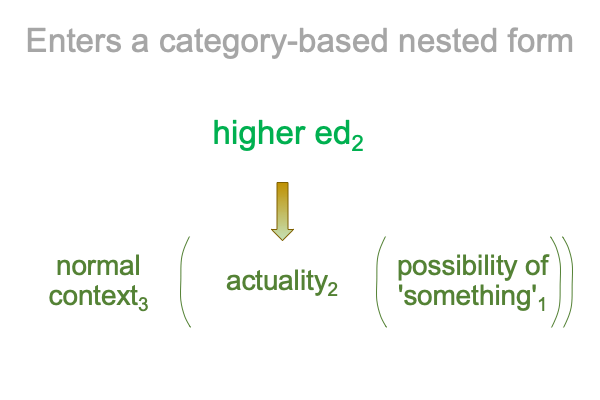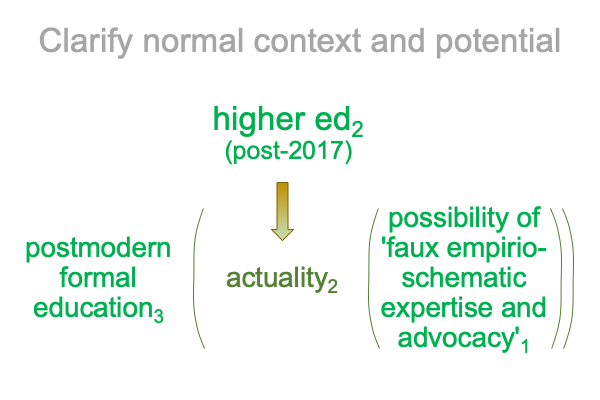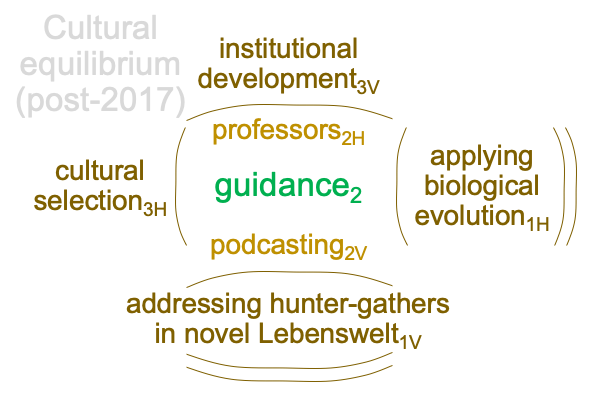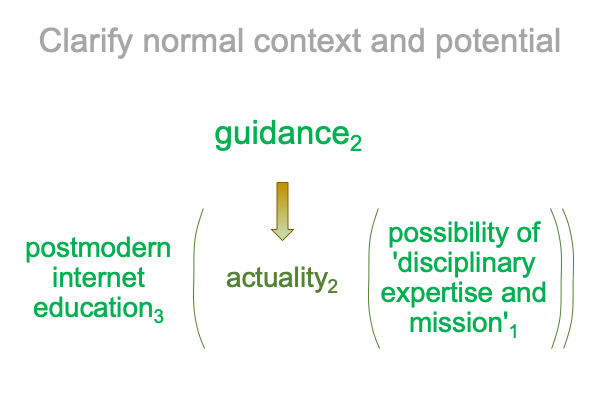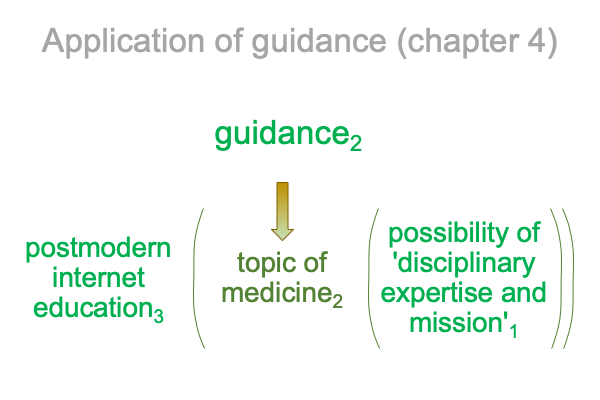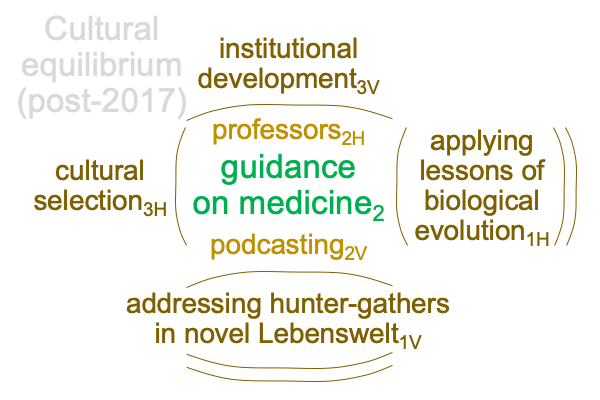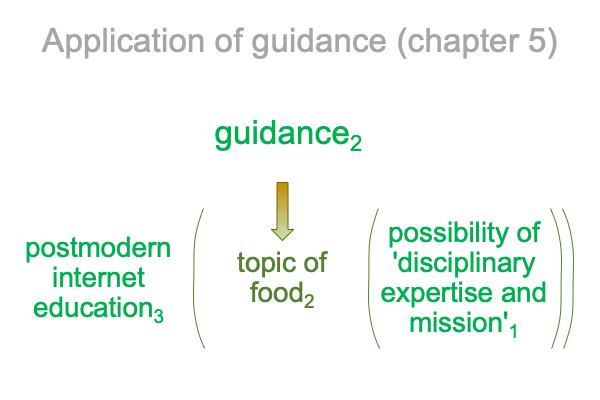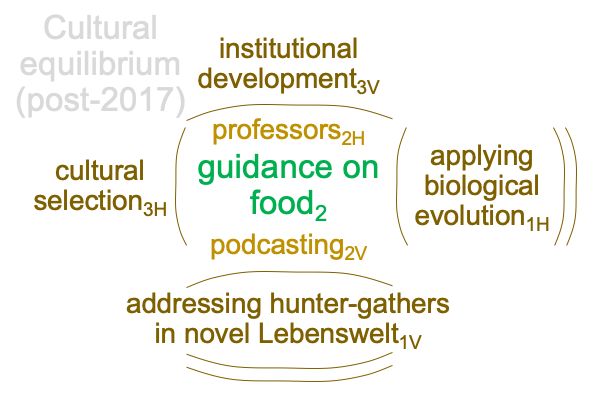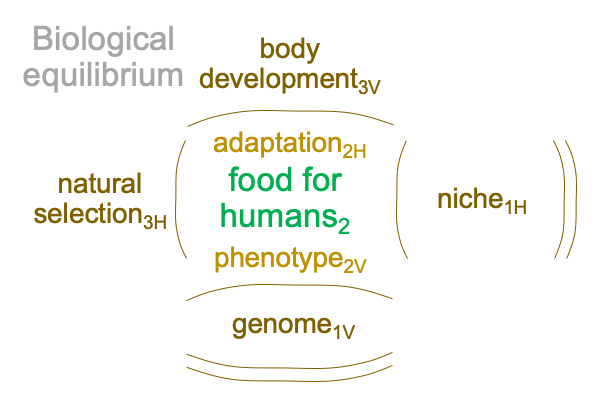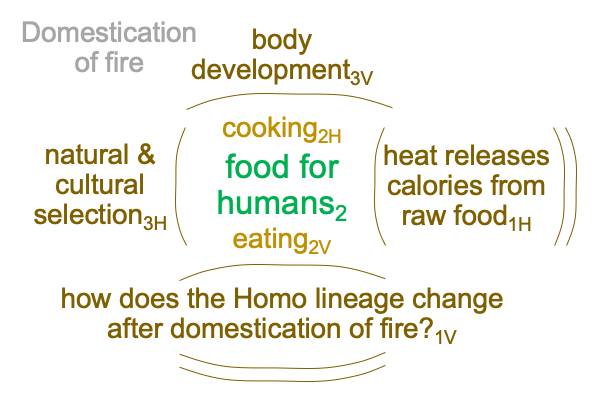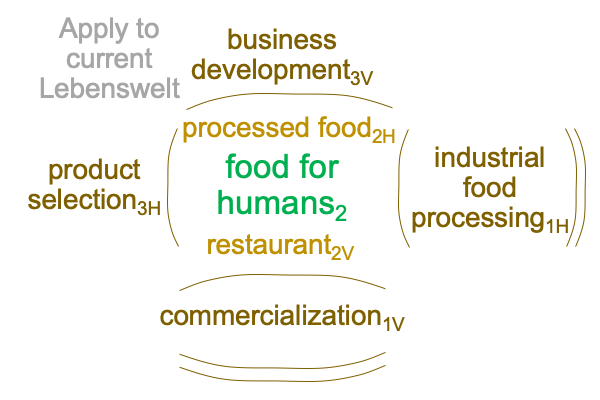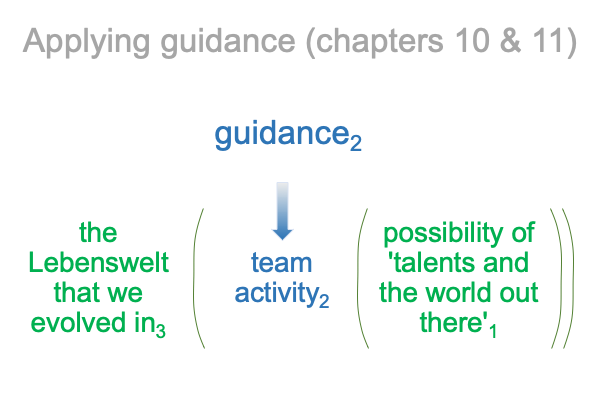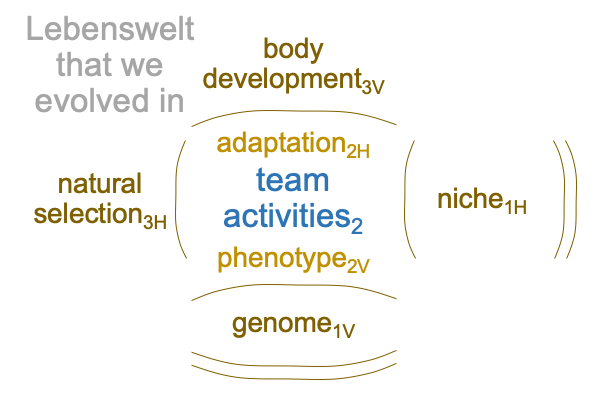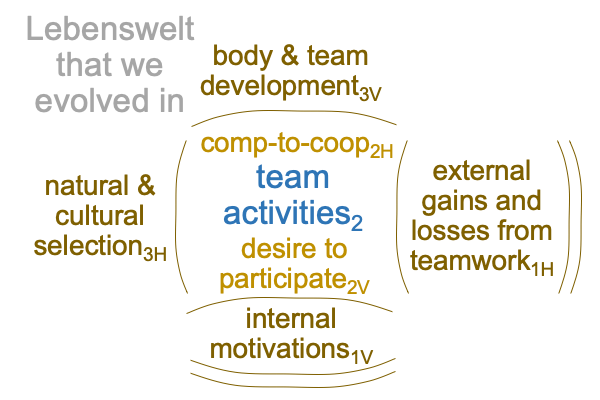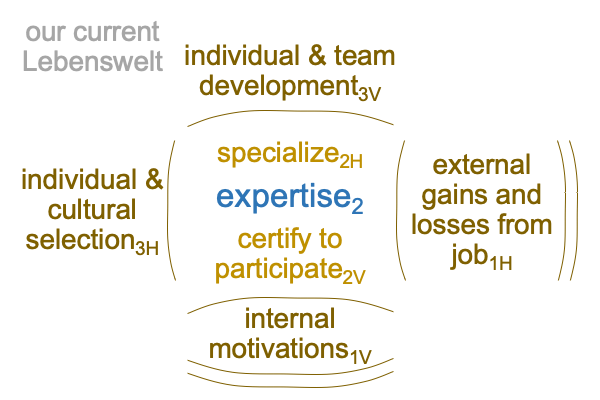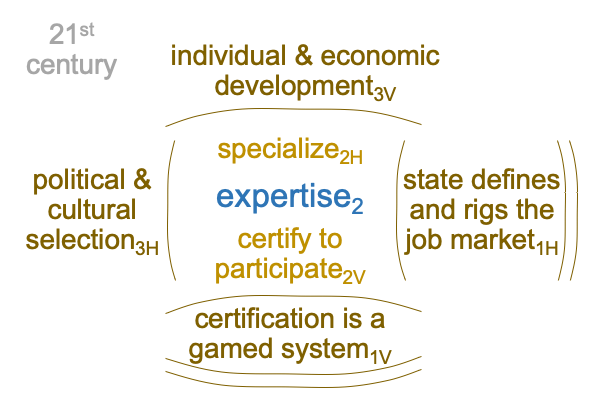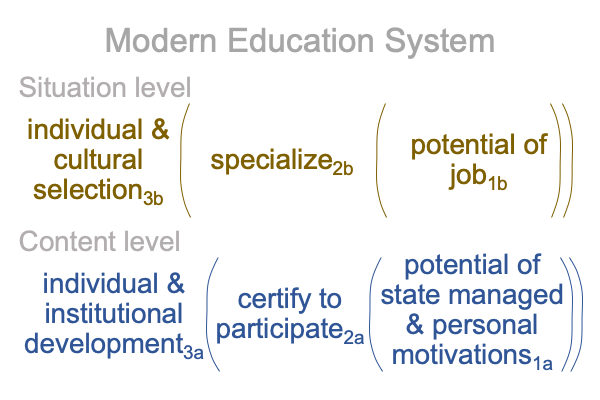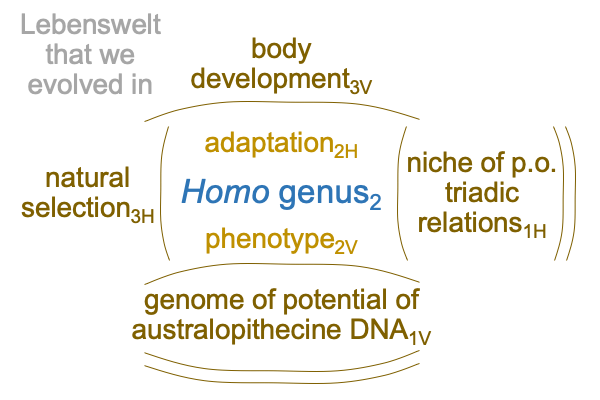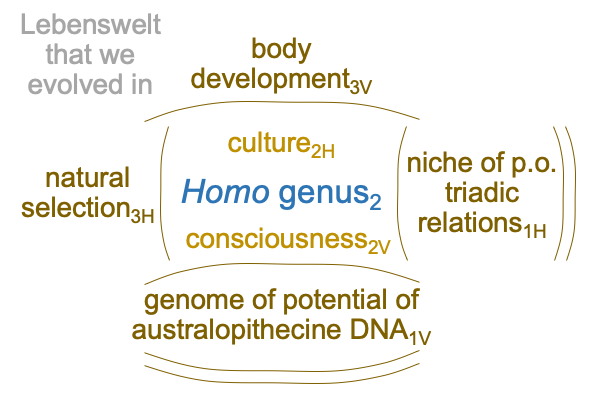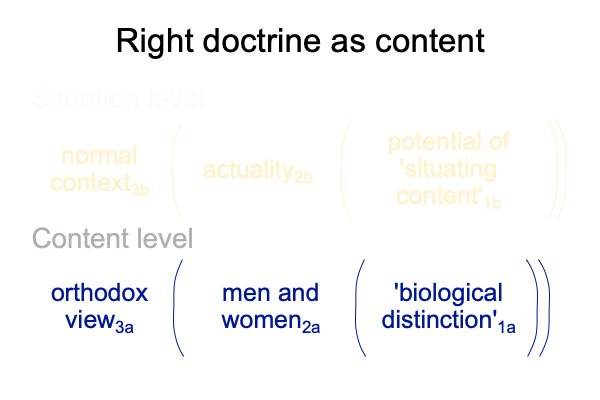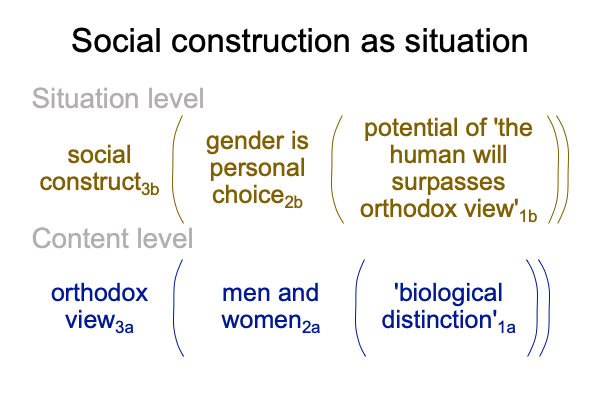Looking at Brian Kemple’s Book (2019) “The Intersection” (Part 4 of 4)
0020 The term, Bildendwelt, sounds like the concatenation of the words, “Bilden” and “dwelt”, as in the English statement, “I dwelt in that Bilden, before it came crashing down.”
In order to appreciate my humor, consider the October 1, 2022, blog at www.raziemah.com, titled, “Fantasia in G Minor: A speech written for Gunnar Beck MEP”.
Da Bilden is coming down!
Oh, I meant to say… the Bildendwelt makes no sense at all.
0021 So much for wordplay.
The compound-word, Bildendwelt stands, waiting to be refined in the furnace of postmodern use.
0022 The third division of Kemple’s book weaves together divisions one and two, titled World and Sign, into an intersection. In the process, Kemple focuses on two elements in the following figure: Sein1V and sign1H.
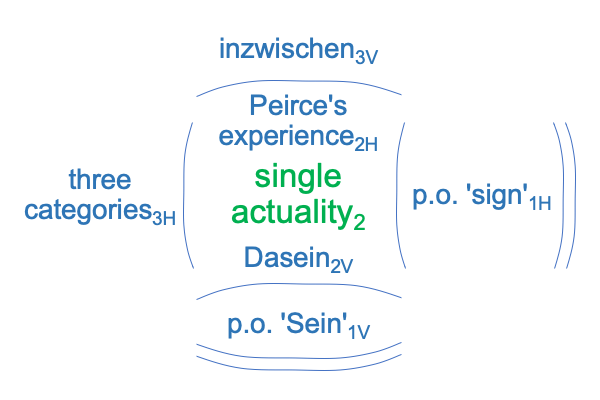
0023 To me, Kemple’s focus is remarkable, because Being1V and triadic relations1H are crucial for bringing our lineage from Umwelt, to Lebenswelt, and further into Bildendwelt. Indeed, I wonder whether these compound terms should be used to label the single actuality of Peirce’s experience2H and Dasein2V.
0024 But, let me not ignore one further possibility, the single actuality is us.
Here is a list of labels for the single actuality.
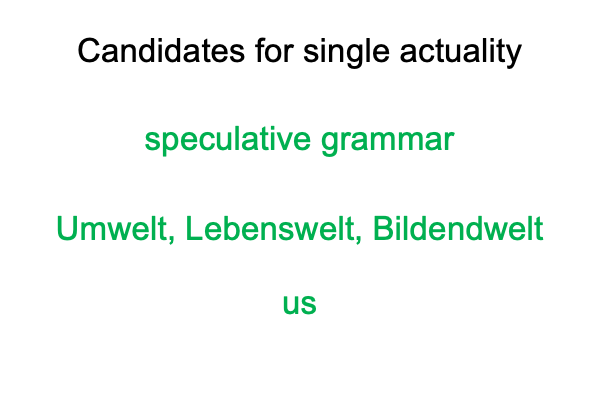
0025 Now, I can portray our descent.
Imagine us, as purely spiritual illuminations, perched on undefinable pillows, in the presence of transcendent beauty in an era when all time is now. A trap door opens and we descend into Being and Time. As we fall, we accrete two actualities, coinciding with Peirce’s experience following his realization that signs are real1H and with Heidegger’s vision of Dasein1V. These actualities are full of contradictions.
As we descend through Being and Time, we accrue World and Sign. We pass through our primordial Umwelt, the Lebenswelt that we evolve in, the first singularity, our current Lebenswelt and now, our Bildendwelt. Descent with modification. Then we are born, in the present, and each one of us bears a message. Baptize me.
0026 What does baptism do?
Baptism cleanses us of Gestell, the grammars of our world, carrying temptation, misdirections and lures that entrap us, confound us, and, in the end, convince us that the truth can never be found.
How so?
Truth is just a spoken word. We create our own “truth”. Spoken words are merely projections of our Innerwelt upon that which is outside ourselves. After temptation fixes our occasions of sin, after our own projections redirect the projections of others and weave a veil of reality, and after we begin to believe in our own self-divinizing speculative grammar, we construct artifacts that validate our spoken worlds. We build our own prison. Heidegger calls it, Gestell.
0027 When the waters of baptism pour over an infant, the baby often cries. The baby represents all of us.
The waters of baptism disturb. Dasein2V! We enter a world perfused with signs. We are welcomed into a world where the material finds meaning in the immaterial. The human niche is the potential of triadic relations. How all encompassing will Peirce’s experience2H be? We stand on the threshold of a new age of understanding.
Kemple offers the reader a portrait of John Deely’s vision, in a book that lives up to its title, in more ways than one. Bravo!






